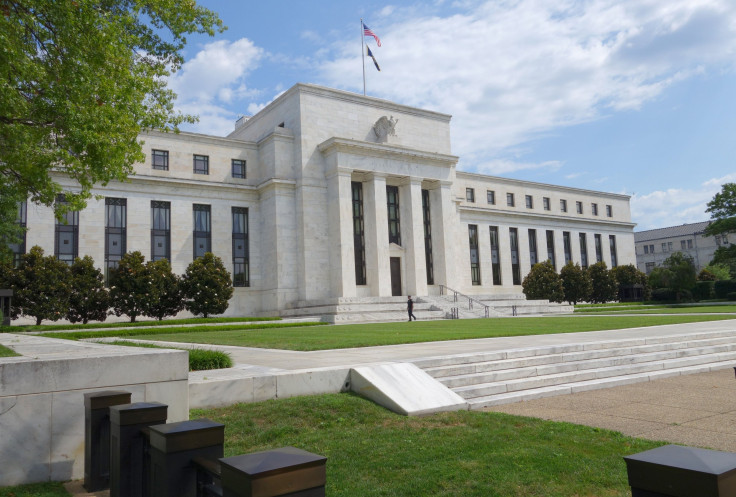Economic Outlook 2016: Potential Instability For Eurozone After US Fed Rate Hike, Economists Say

The U.S. Federal Reserve’s decision to boost interest rates may have negative repercussions on eurozone economies, according to a poll published in the Financial Times Sunday. The Fed raised rates in December for the first time in almost 10 years, a move planned as a first step on the way back to normalized conditions in the wake of the global financial crisis that became obvious to all in 2008.
“The most important effect [of the increase in the federal funds rate] will be a lower euro/dollar exchange rate, which should push up import prices and hence lead to some upwards pressure on inflation,” Nick Kounis, head of macro and financial markets research at Dutch state-owned bank ABN Amro, told the Financial Times.
Overall, 18 of the 31 economists polled by the Financial Times, said the rate increase would push the euro down to the equivalent of $1 at some point in 2016.
Here's how Fed rate hikes impact stock markets around the world https://t.co/NkHSSZrZ75
— Business Insider (@businessinsider) December 22, 2015Eurozone economies have slowly recovered from the global financial crisis in part because of initiatives by the European Central Bank. A mixture of loans to different national economies, negative interest rates and quantitative easing have been among tools employed by the ECB.
Several countries in the eurozone, such as Greece, Italy and Spain, have continued to struggle with high debt levels and slow growth. With unemployment still in the double-digits and national deficits high, these countries cannot afford big hits on their economic recoveries.
Some economists were optimistic when it came to the impact of the Federal Reserve rate hike on the eurozone, noting the change had been expected and that the relevant authorities would be prepared, while pointing out a weaker currency could help spur exports. “The prospect of the Fed raising rates and the ECB easing policy in December has been fully priced in by currency markets,” Holger Schmieding, chief economist at Germany’s Berenberg Bank, told the New York Times.
© Copyright IBTimes 2025. All rights reserved.






















